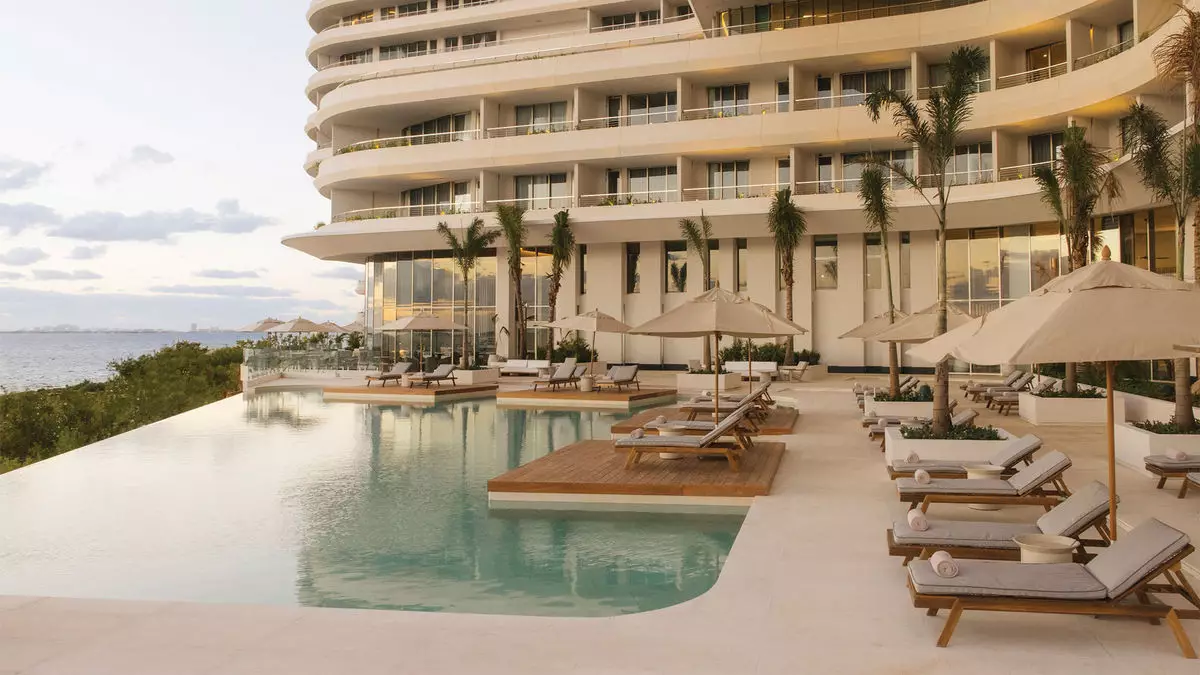The luxury hospitality sector is currently in the throes of a significant transformation, primarily sparked by an intensified focus on medical wellness and longevity. As an increasing number of high-end resorts and wellness centers seek to offer more sophisticated and elite longevity treatments, the race for wellness supremacy has escalated. This burgeoning trend marks a departure from traditional wellness practices and signals a growing aspiration among the wealthy to extend not just lifespan but also the quality of health throughout their aging process.
An array of factors fuel this latest wellness phenomenon. With societal perspectives shifting rapidly, the desire for an extended health span and a more vibrant aging experience is becoming prevalent. Many individuals, particularly those who can afford to invest significantly in their health, are rejecting the aging paradigms exemplified by prior generations. According to insights from industry experts, the conventional medical model, which often emphasizes treatment over preventive care, is failing to meet the needs of health-savvy elites. Consequently, there is a palpable demand for a more personalized, concierge-like approach within the wellness industry—a service that promises not just a healthier life but also longevity through medical methods.
The high stakes associated with this medical wellness trend are evident in the astronomical prices some treatments command. Traditional luxury spa offerings tend to average around $500, yet many longevity-focused treatments can reach prices of $10,000 or even $25,000, depending on their complexity and promises. This steep increase in service pricing aligns with the significant wealth accumulation observed during the COVID-19 pandemic, positioning affluent consumers as the primary clientele for these exclusive treatments. As demand grows, luxury resorts are capitalizing on this willingness to invest considerable sums into health and longevity, leading to a proliferation of offerings imbued with high-tech medical methodologies.
Several high-profile partnerships and innovations exemplify this competitive landscape. For instance, the Four Seasons Resort Maui has engaged medical-longevity enterprises like Next Health to provide innovative treatments. Packages that include advanced therapies—ranging from stem cell treatments to comprehensive wellness protocols—are becoming common offerings. At the same time, new ventures have emerged, like The Estate hotel brand backed by Tony Robbins, which concentrates specifically on preventive medicine. This trend reflects a broader industry movement towards creating an expansive network of retreats focused on holistic longevity solutions, a development that proposes both opportunities and challenges.
Established brands, such as Canyon Ranch and Six Senses, are adapting to stay relevant by introducing their own medical wellness initiatives. For example, Canyon Ranch’s recently launched Longevity8 program offers extensive health evaluations and consultations, with a price tag reflecting its comprehensive nature. Meanwhile, Six Senses has transformed its wellness offerings by integrating medical wellness ideas into its holistic ethos at new locations, thereby broadening their appeal to a more health-conscious clientele.
The competitive nature of this emerging landscape is compelling various stakeholders to wrestle with defining their unique selling propositions amidst a flood of similar offerings. The potential for market saturation looms large, as each brand vies for clarity and distinction in a jumbled wellness marketplace. As industry experts note, the terms “wellness” and “longevity” themselves may soon suffer from overextension, leading to consumer confusion.
While the future appears bright for the luxury medical wellness sector, it is not without its challenges. The exclusivity and astronomical pricing of services may create a dichotomy between the industry’s elite clientele and the broader population, leading to potential ethical concerns about accessibility. Segmenting offerings for the top tier of society risks alienating a larger audience that may benefit from wellness advancements. As the market progresses, companies must address these stratifications while effectively communicating the value proposition behind their luxury offerings.
The luxury hospitality sector’s current infatuation with medical wellness and longevity reflects broader societal shifts, aspirations for healthier aging, and an undeniable trend toward high-end health solutions. However, as competition increases and offerings expand, clarity and consumer engagement will become paramount to avoid oversaturation and confusion within the market. Balancing innovation, accessibility, and quality will thus be essential for brands navigating this rapidly evolving landscape.


Leave a Reply